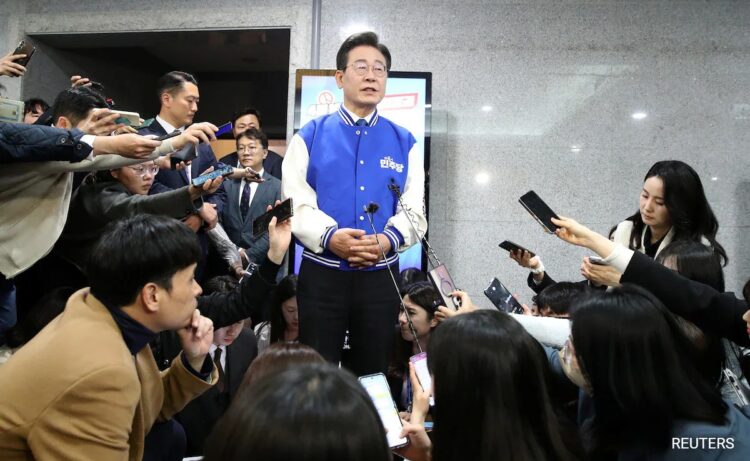In a significant political shift, South Korea’s liberal opposition parties have emerged victorious in Wednesday’s parliamentary election, posing a formidable challenge to President Yoon Suk Yeol and his conservative allies. While falling short of a super majority, the landslide win underscores a growing discontent with the current administration’s policies.
According to data from the National Election Commission and network broadcasters, the Democratic Party (DP) is poised to claim over 170 seats in the 300-seat legislature, with more than 99% of the votes tallied as of 5:55 a.m. on Thursday. Additionally, a splinter liberal party, aligned with the DP, is expected to secure at least 10 seats.
Analysts view the fiercely contested election as a referendum on President Yoon, whose popularity has waned amidst economic challenges and political controversies. Despite projections indicating that his People Power Party (PPP) would win just over 100 seats, thereby avoiding a super-majority, Yoon’s ability to enact his agenda is likely to be severely constrained, potentially relegating him to a “lame duck” status.
Official results from the National Election Commission are anticipated later on Thursday. The voter turnout reached a historic high, with nearly 29.7 million people, or 67% of eligible voters, casting their ballots, underscoring the significance of this election. While lower than the turnout in the 2022 presidential vote, the engagement demonstrates the electorate’s strong voice in shaping the country’s political landscape.
Although President Yoon, who assumed office in May 2022, was not on the ballot this time, the outcome of the election will significantly impact his ability to advance legislative priorities. With public dissatisfaction evident and opposition control looming, Yoon may shift focus to his international agenda. However, potential budget cuts by the opposition could jeopardize these plans.
As South Korea braces for a new political era, the results of this election signal a clear mandate for change and a shift in power dynamics within the country’s political landscape.

















Comments